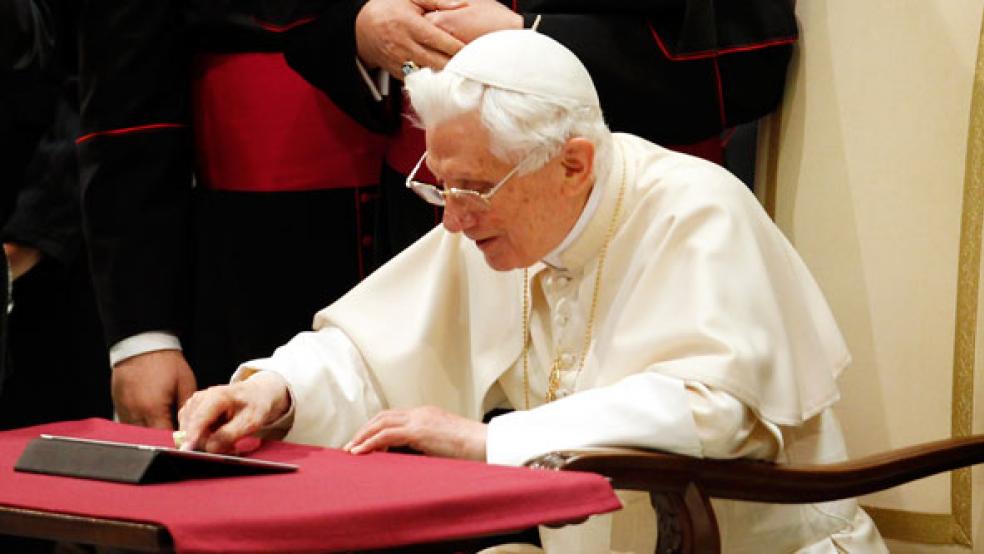Pope Benedict XVI, leader of the globe’s 1.2 billion Catholics, shocked the world this morning when he announced he is resigning.
The resignation of a pope is an extremely rare thing: a sitting pope hasn’t abdicated for 598 years. Benedict, who recently joined Twitter in an effort to connect with youth, said he was resining due to poor health and old age. But this pope has also been hounded by scandals since he ascended to the papacy in 2005.
The scandals that rightly receive the most attention involve the cover-up of sexual abuses by priests around the globe, including in Benedict’s native Germany. But financial scandals have also plagued Benedict’s short time as the Holy See.
The Vatican, an independent country, has its own bank known as the Institute for Work on Religion. Little is known about the bank – like the rest of the Vatican’s inner workings, the bank is hidden under a cloak of secrecy – but it’s suspected to have $4 billion in assets.
It’s also long suspected to have a hand in money laundering. In 2010, Italian authorities seized $30 million to prevent the money from illegally moving through the bank. In total, Italian financial regulators suspect hundreds of millions of dollars were laundered through the Institute for Work on Religion.
In 2010, as part of an effort to stop corruption at the bank, Benedict created the Financial Information Authority, an independent board to oversee the bank’s dealings. But the board has done little to stop illegal activities.
In May 2012, in a scandal known as “Vatileaks,” the pope’s butler was arrested for leaking documents that hinted at continued shady dealings at the bank. These documents sparked a money laundering investigation of Ettore Gotti Tedeschi, former president of the Vatican bank.
The pope’s resignation also raises questions about the future of the Catholic Church, which operates largely on money collected from worshippers each Sunday. No one knows exactly how much the church is worth. However, a 2012 Economist report estimated that the church spent $171 billion in 2010, putting it on par with a Fortune 100 company.
The money raised through donations is on the wane because membership in the church is declining rapidly. According to a 2010 report in The Week, in the United States since the 1960s, only one person has joined the church for every four that have left. In 2008 membership in the church decreased by 400,000, and more than 100 parishes have closed in the last twenty years.
An organization called Voice of the Faithful, launched in 2002 with the tagline, “Keep the Faith, Change the Church,” has called for more transparency in both sexual abuse allegations as well as financial accountability. For some, this has meant not donating to a diocese that may use the money to support a defense fund for child abusers.
Things are even worse in Europe. In Ireland, a once devoutly Catholic country recently rocked by its own sex abuse scandal, only 50 percent of the population attends Mass each week, compared with 84 percent in 1991. Following a sex scandal in Germany in 2010, 181,000 people left the church.
So even before Benedict’s shocking announcement, the Catholic Church was the “largest institutional crisis in centuries, possibly in church history,” according to the National Catholic Reporter. The last time a pope resigned the church nearly split.
"This is disconcerting, he is leaving his flock," Alessandra Mussolini, an Italian politician and granddaughter of the former Italian dictator Benito Mussolini, told Reuters. "The pope is not any man. He is the Vicar of Christ. He should stay on to the end, go ahead and bear his cross to the end. This is a huge sign of world destabilization that will weaken the Church."


